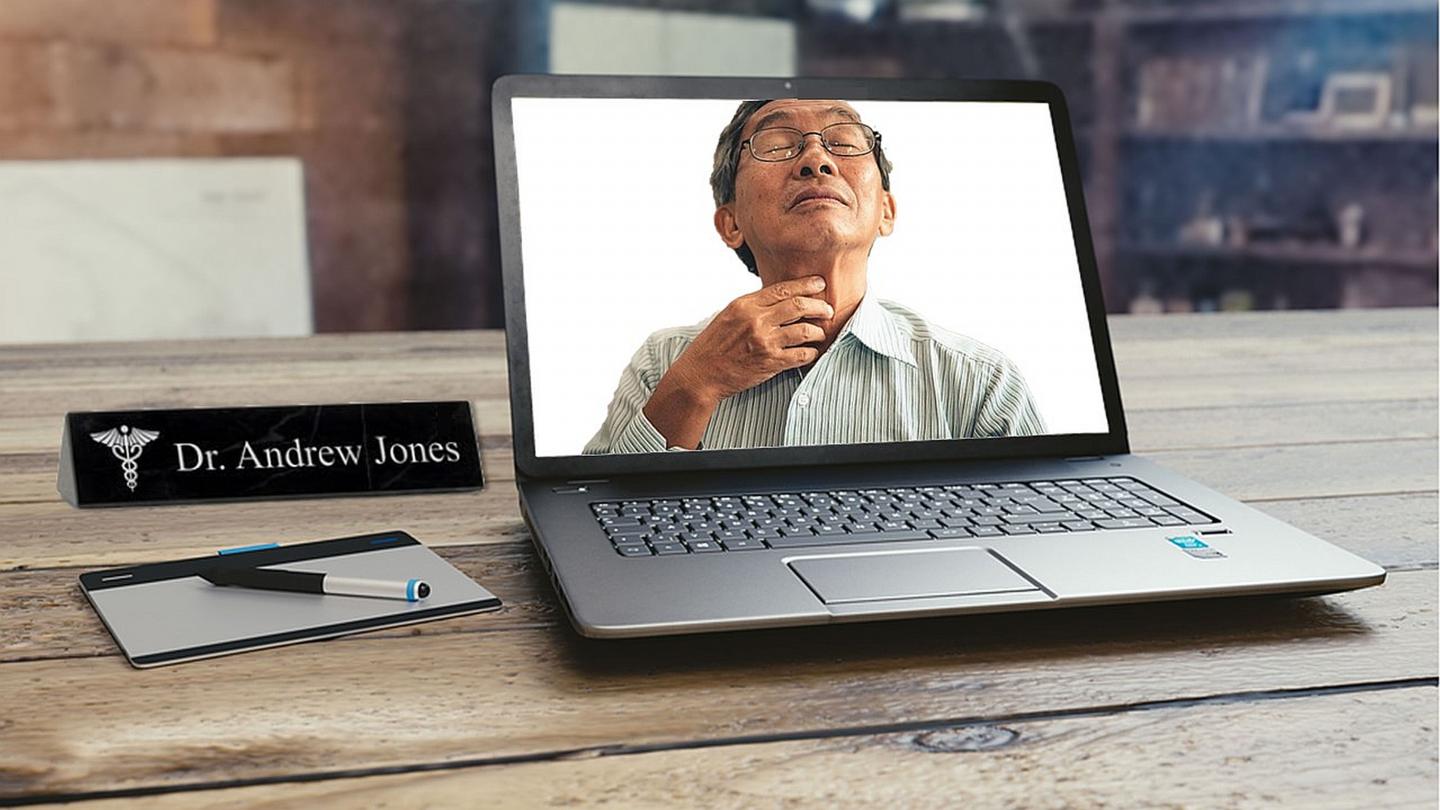
Credit: Graphic created by M.E. Newman, Johns Hopkins Medicine, with public domain images.
COVID-19 and SARS-CoV-2, the virus behind the disease, have caused health care providers to change how they treat patients. Clinicians are now frequently using telemedicine to see their patients for routine checkups, saving office visits for emergencies. The same goes for rehabilitation. For example, researchers are looking for ways to improve the screening, assessment and treatment of patients with COVID-19 and dysphagia — swallowing difficulties — by doing it remotely.
Health care professionals whose work puts them in contact with the body areas frequented by SARS-CoV-2 — such as the nose, mouth and airway — share a responsibility for engaging patients in a manner that won’t add to the spread of COVID-19. Risks need to be weighed before screenings, assessments and treatments are undertaken.
Ideally, clinicians assess dysphagia through a clinical (bedside) evaluation and one of two standard tests: a videofluoroscopic swallow study or a flexible endoscopic evaluation of swallowing. These exams determine swallowing ability, look for changes in the anatomy and movements of the larynx and tongue, analyze airway vulnerability, and measure other characteristics related to swallowing physiology.
However, during the pandemic, clinicians diagnosing and treating dysphagia in COVID-19 patients are putting themselves at risk by using these up close and physical techniques. And simply relying on methods such as medical history reviews and patient reporting of symptoms is not enough.
“The irony is that patients with COVID-19, especially those who were recently removed from mechanical ventilation in intensive care units, may be among those who most need the clinical and instrumental exams for properly and comprehensively assessing dysphagia,” says Martin B. Brodsky, Ph.D., Sc.M., associate professor of physical medicine and rehabilitation at the Johns Hopkins University School of Medicine.
Therefore, in an editorial in the September 2020 issue of the Archives of Physical Medicine and Rehabilitation, Brodsky and colleague Richard Gilbert, M.D., with the Laboratory for Biological Architecture at the Providence VA Medical Center, say it’s time to embrace telemedicine for dysphagia.
“To make that happen, there needs to be continued engagement by clinicians with third-party payers — including insurance companies, and state and federal government programs such as Medicare — to get support, acceptance and financial coverage for the use of telemedicine in this way,” he explains.
Treating dysphagia remotely is not new, having been researched and practiced (to a smaller extent) for nearly 20 years. However, more widespread use had previously been hampered by technological difficulties, high expense of equipment, lack of standardized training, and billing and coverage issues.
That all changed, Brodsky says, with the arrival of COVID-19.
“Although vast improvements in telemedicine for dysphagia have been made in recent years, patients continue to be limited in their ability to receive effective remote care,” Brodsky says. “With the current pandemic, we need that to change because the traditional clinical and instrumental exams used for assessing dysphagia are putting health care workers who treat patients with COVID-19 at risk for contracting and further spreading the disease.”
“We need innovative thinking and technologies to be rapidly translated into clinical practice to enable telemedicine services for dysphagia — now, more than ever,” adds Brodsky.
###
Brodsky is available for interviews.
Media Contact
Brian H. Waters
[email protected]
Original Source
https:/
Related Journal Article
http://dx.





